1 of 5

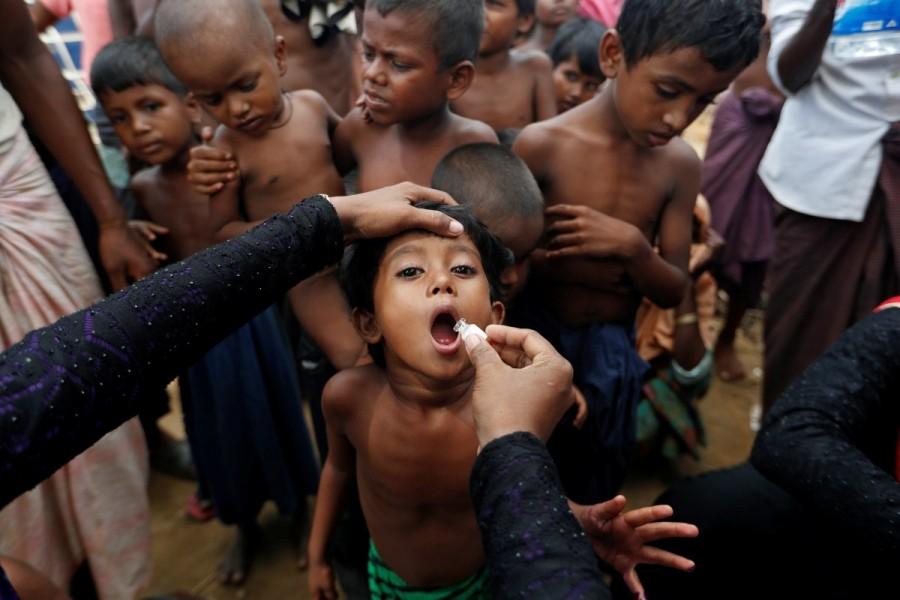
A Rohingya refugee child gets an oral cholera vaccine in a refugee camp near Cox's Bazar, October 11, 2017. Aid workers worry they lack the staff to get the vaccines out quickly, while the WHO says it urgently needs $10.2 million to do the job properly. The first round of the vaccination campaign will cover 650,000 people aged one year and older. A second round will target 250,000 children aged between one and five with an additional dose for extra protection.
Credit: Reuters
2 of 5

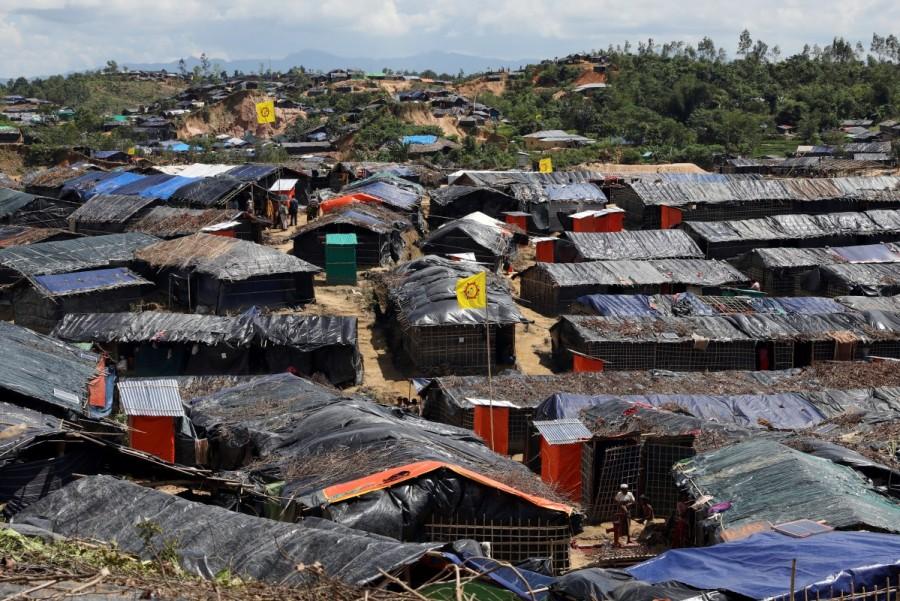
Temporary healthcare centers, where the oral cholera vaccine provided by the WHO is administered, are seen marked with yellow flags in the Jamtoli refugee camp in Cox's Bazar, October 10, 2017. The cholera vaccination campaign in Bangladesh, the second largest in history, will be crucial to containing any outbreak, said Dr N. Paranietharan, the WHO's representative in Bangladesh. More than 1,000 people will fan out across the sprawling camps on the southern tip of Bangladesh that are home to more than 519,000 Rohingya Muslims.
Credit: Reuters
Advertisement1
3 of 5
![A woman comforts her husband suffering from severe diarrhoea at a dysentery clinic run by Medical Teams International in Kutupalong camp near Cox's Bazar, Bangladesh October 6, 2017. Rohingya refugee camps,Rohingya camps,refugee camps,Bangladesh]()
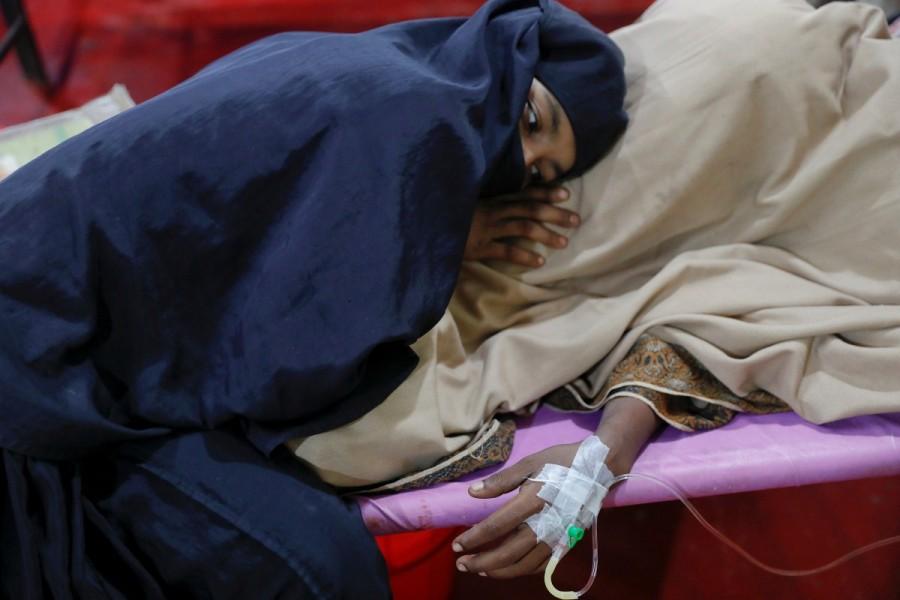
A woman comforts her husband suffering from severe diarrhoea at a dysentery clinic run by Medical Teams International in Kutupalong camp near Cox's Bazar, Bangladesh October 6, 2017.
Credit: Reuters
4 of 5
![A Rohingya refugee child gets an oral cholera vaccine, distributed by the World Health Organisation (WHO) with the help of volunteers and local NGOs, in a refugee camp near Cox's Bazar, October 11, 2017. The WHO began distributing 900,000 doses of cholera vaccine on Tuesday in Bangladesh’s camps for Rohingya refugees fleeing from Myanmar, as authorities rush to prevent a major outbreak of the deadly disease. Rohingya refugee camps,Rohingya camps,refugee camps,Bangladesh]()
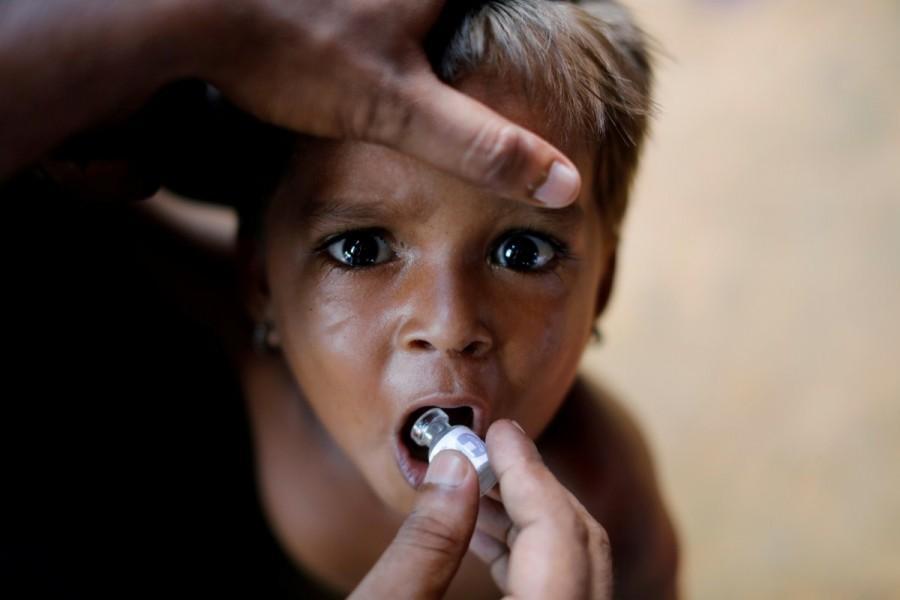
A Rohingya refugee child gets an oral cholera vaccine, distributed by the World Health Organisation (WHO) with the help of volunteers and local NGOs, in a refugee camp near Cox's Bazar, October 11, 2017. The WHO began distributing 900,000 doses of cholera vaccine on Tuesday in Bangladesh’s camps for Rohingya refugees fleeing from Myanmar, as authorities rush to prevent a major outbreak of the deadly disease.
Credit: Reuters
5 of 5
![A child suffering from severe diarrhoea is brought to a dysentery clinic run by Medical Teams International at the Kutupalong Rohingya refugee camp near Cox's Bazar, October 7, 2017. Murray said there could be "tens of thousands" of victims in an outbreak. Paranietharan said his organization had the capacity to handle 70,000 cholera cases. Rohingya refugee camps,Rohingya camps,refugee camps,Bangladesh]()
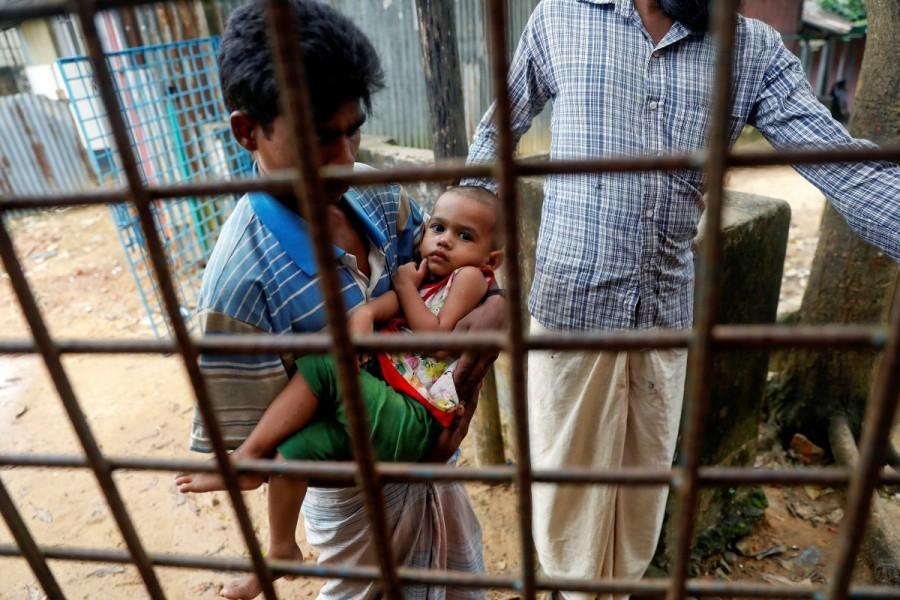
A child suffering from severe diarrhoea is brought to a dysentery clinic run by Medical Teams International at the Kutupalong Rohingya refugee camp near Cox's Bazar, October 7, 2017. Murray said there could be "tens of thousands" of victims in an outbreak. Paranietharan said his organization had the capacity to handle 70,000 cholera cases.
Credit: Reuters








